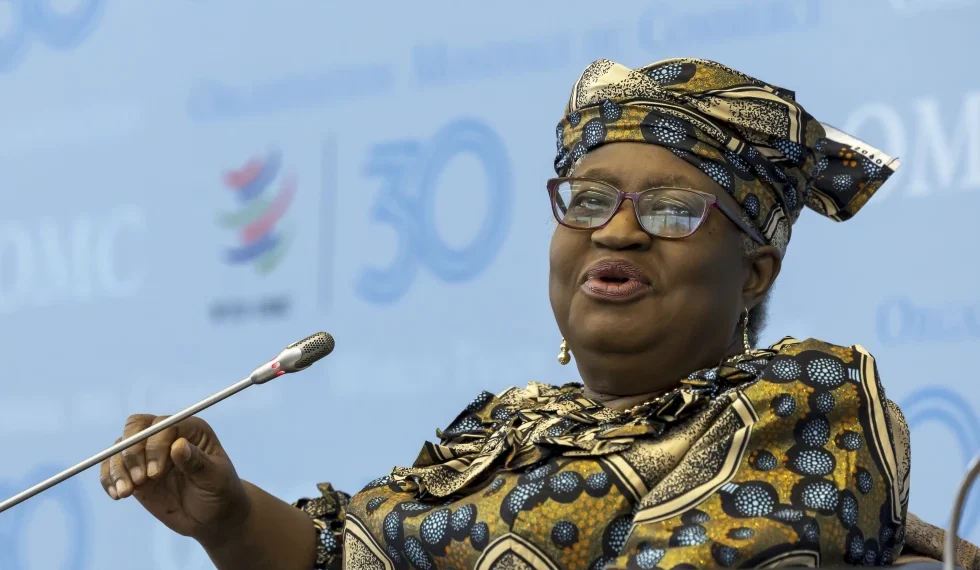Ngozi Okonjo-Iweala has been re-elected as Director-General of the World Trade Organization (WTO) for a second four-year term without opposition.
Her leadership comes at a critical juncture as global trade faces challenges from shifting policies, economic disruptions, and geopolitical tensions.
Okonjo-Iweala, the first woman and first African to hold the position, has pledged to build on her accomplishments while addressing the complexities of international trade. The unanimous decision to extend her tenure reflects widespread support for her efforts to revitalize the WTO. Her second term will officially begin in September 2025.
The Director-General acknowledged the significance of the reappointment, expressing optimism about working with all member countries, including the United States, under its incoming administration. “I think that I look very much forward to working with President Trump — with all the new people who will be appointed,” Okonjo-Iweala said. “I’m eager for it.“
The WTO, responsible for regulating global trade and fostering cooperation among 166 member nations, faces a pivotal period. Trump’s return to power in January 2025 could bring a shift in U.S. trade policy, particularly his proposals for new tariffs. These include a 25% tax on goods entering the United States from Mexico and Canada and a 10% levy on imports from China.
Such measures, if implemented, could disrupt global supply chains and conflict with WTO rules. Although the organization’s dispute resolution process provides a platform for addressing these issues, its appellate body remains nonfunctional due to U.S. resistance to appointing new members.
Okonjo-Iweala, while cautious about commenting on specific policies, underscored the importance of global cooperation.
“Until we get specifics in terms of what is planned, I think it would be a bit premature to try to pronounce on these issues … And we’re very much looking forward to working in a productive fashion.”
During her first term, Okonjo-Iweala emphasized reforms to enhance the WTO’s relevance, including addressing disputes and tackling pressing global issues.
One of her key priorities has been phasing out harmful subsidies in the fisheries sector, a $22 billion industry that threatens ocean ecosystems.
“The WTO and its rules underpin 75 to 80% of global goods trade,” she highlighted, noting the organization’s foundational role in maintaining stability in international commerce. However, she acknowledged the need for modernization to address contemporary challenges.
Her reappointment also signals continuity in efforts to balance the interests of developed and developing nations, ensuring that smaller economies have a voice in shaping trade policies.

Leadership in Uncertain Times
Okonjo-Iweala’s leadership comes at a time of mounting uncertainties in global trade, from economic disruptions caused by the COVID-19 pandemic to geopolitical tensions affecting supply chains. As the WTO’s decisions are made by consensus, her ability to mediate among diverse stakeholders will be crucial.
The Director-General’s approach has been lauded for its focus on fostering dialogue and collaboration. By prioritizing reforms and championing equitable trade practices, she aims to position the WTO as a key player in resolving disputes and advancing sustainable economic growth.
Her historic tenure, beginning in 2021, brought diversity and a fresh perspective to the organization. As a former Nigerian finance minister with U.S. citizenship, Okonjo-Iweala has leveraged her experience to navigate complex international dynamics effectively.
As such, as the WTO enters its next phase under her leadership, the global community will see how she addresses pressing challenges, ensures the organization’s relevance, and fosters a more inclusive trade environment.
READ ALSO: Akufo-Addo Inaugurates Phase 2 of the Obetsebi Lamptey Interchange























